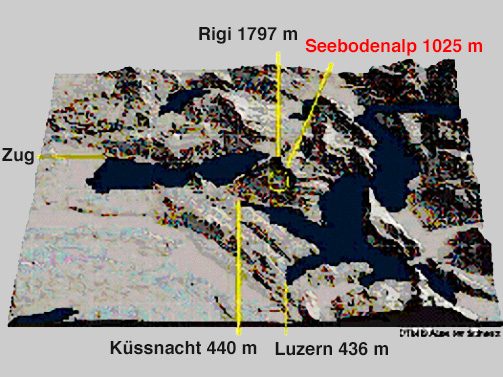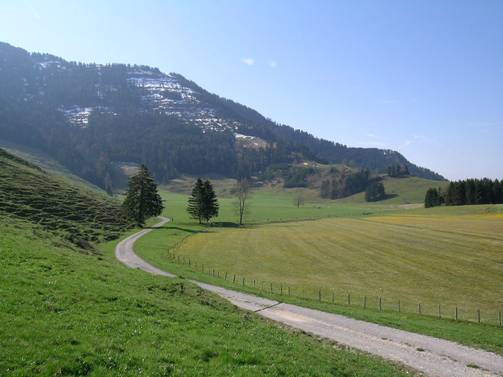CarboMont
Effects of land-use changes on sources, sinks and fluxes of carbon in European mountain areas.
The NEE determined with the eddy covariance method is characteristic for two ecosystems (intensively managed and abandoned grasslands at Rigi-Seebodenalp), and provided information on its long-term carbon source or sink relationship.
The driving variables photosynthetic active radiation (PAR), temperature (T), humidity (VPD), soil water potential (Ysoil), and nutrient availability (nitrogen), were recorded along with the EC measurements.
This data set allowed analyzing the contribution of each variable to the NEE, and was essential for ecosystem carbon exchange modeling.
Publications
Rogiers N, Conen F, Furger M, Stöckli R, Eugster W (2008) Impact of past and present land-management on the C-balance of a grassland in the Swiss Alps. Global Change Biology 14: 2613-2625
Rogiers N, Eugster W, Furger M, Siegwolf R (2005) Effect of land management on ecosystem carbon fluxes at a subalpine grassland site in the Swiss Alps. Theor Appl Climatol 80:187-203
Rogiers N, Sanz MJ, Stefani P, Sutton M, Tuba Z, Valentini R, Williams ML, Wohlfahrt G (2007) Partitioning European grassland net ecosystem CO2 exchange into gross primary productivity and ecosystem respiration using light response function analysis. Agriculture, Ecosystems and Environment 121:93-120
Wohlfahrt G, Anderson-Dunn M, Bahn M, Balzarolo M, Berninger F, Campbell C, Carrara A, Cescatti A, Christensen T, Dore S, Eugster W, Friborg T, Furger M, Gianella D, Gimeno C, Hargreaves K, Hari P, Haslwanter A, Johansson T, Marcolla B, Milford C, Nagy Z, Nemitz E, Rogiers N, Sanz MJ, Siegwolf RTW, Susiluoto S, Sutton M, Tuba Z, Ugolini F, Valentini R, Zorer R, Cernusca A (2008) Biotic, abiotic, and management controls on the net ecosystem CO2 exchange of European mountain grassland ecosystems. Ecosystems 11: 1338-1351

